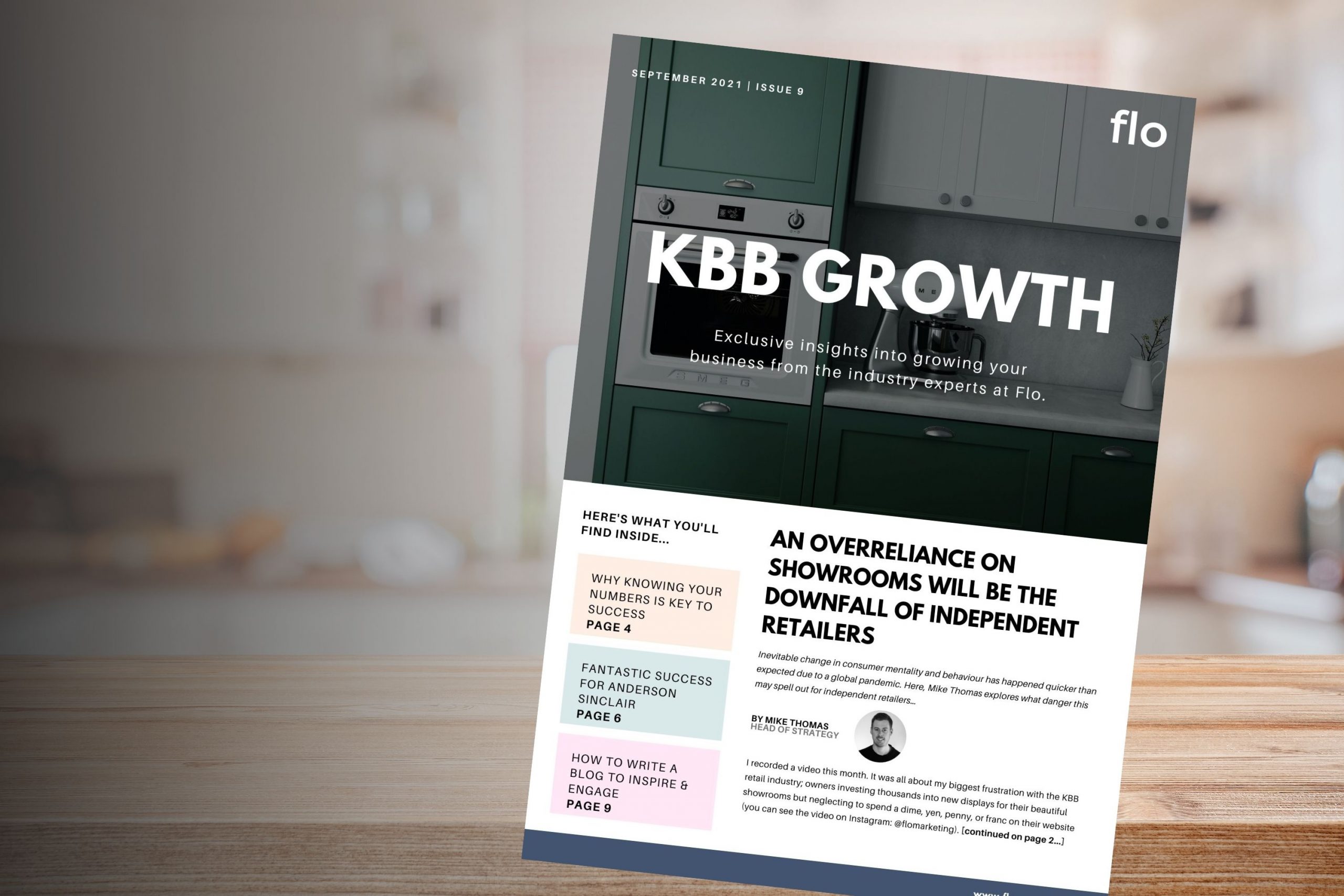Many of the great tales we’ve fallen in love with are based on the underdog. Frodo’s journey to destroy the ring. Harry Potter and Lord Voldemort. David and Goliath. It strikes me that the independent KBB sector finds itself in a similar story, currently fighting a losing battle against a corporate colossus. Many opinions have been cast at Wren’s aggressive business model, but here’s our view on the whole thing…
Competition brings out our best performance; without it, we would operate far below the peak of our powers.
Without competition, many great feats may never have been achieved. For example, Thomas Edison versus George Westinghouse’s battle to bring electrical power to our homes in the late 1800s. Scott versus Amundsen for the South Pole in 1911. A 6-a-side football team versus the other bunch of halfwits on a Wednesday night. You get the picture.
Former SAS soldier and TV presenter Ant Middleton says you should ‘go to work every day thinking about how you can be better than your closest competitor because they’re always trying to ‘outdo’ you.’ We think that’s a bloody smashing idea.
It baffles us when we speak to retailers who sincerely explain that Wren is NOT their competition. Let’s get this straight: Unless you’re selling high-end kitchens upwards of £50,000, Wren is very much your competitor, and whether you’re aware of it or not, they have happily taken food from your table in the past five years.
Many of the most successful people in business learn from those in the top 1% of their field, which is something we’ve always strived to do. What are the ‘best of the best’ doing? How can we take that and make it work for me? According to some of the thought-leaders and gurus in the personal development space, ‘your life is defined by the questions you ask’. Make what you will of that…
We’re always amazed by the amount of anger and resentment independent KBB owners direct towards Wren. We’re not ignorant to the fact that they’re a ‘stack ’em high, sell ’em cheap’ kind of business that only care about sales numbers and are guilty of some shocking craftsmanship (as illustrated by the infamous Facebook page dedicated entirely to Wren-bashing). But, the truth is that with every day that goes by, Wren (and some of the other sheds) are eating away at more and more of the KBB market (a blind man could see that, but we also know this to be true because we’ve seen the figures). This may not be overly surprising to you (as it wasn’t to us), but what is surprising is that independents all around the land have simply accepted it and aren’t trying hard enough to fight back and stem the tide.
At this rate, the day will come when there’s not much of the pie left for us, the poor independents. If some of us put as much energy into our marketing as we did into berating Wren Kitchens, then things might start to look up for the independent sector.
Whatever your opinion of the little green bird, you can’t say a bad word about their marketing operation. It’s an operation that needs to feed a hungry beast, a beast so large it would quickly fall over and die should it be starved of enquiries. Such is the pressure to feed it, that it needs a marketing team that is slick, effective, and most importantly, generates results. Before we discuss what we can learn from Wren, let’s first address some common misbeliefs about the comparison between us and them…
“I can’t compete with Wren as they have astronomical budgets.”
Yes, they have deep pockets, but, as explained above, they need them to fill their vast network of showrooms with leads. We’re assuming that you have a smaller showroom, and smaller sales targets and should therefore be able to put a sensible marketing budget aside to suit your own objectives.
“Wren have showrooms that we can’t compare to.”
Yes, it’s hard to compete when it comes to size, but we smaller retailers have the chance to make the customer experience second to none, and most of us have a product that’s far superior.
So, what can we learn from Wren?
Get serious about sales targets.
The phrase ‘what gets measured gets managed’ comes to mind here, and Wren are certainly good at measuring key business statistics. In fact, the whole company is driven by numbers. I’m not saying that you need to turn your business into the trading floor of Wall Street, but set yourself a target and measure yourself against it each week.
1. Treat every enquiry as though it’s your last.
Independents can be guilty of not following up with brochure downloads, emails, calls and website enquiries sufficiently, and some of them don’t even answer calls (you’d be surprised how many). This kind of behaviour just doesn’t happen at Wren. They have hard-nosed salespeople who are well drilled in treating each enquiry like gold dust. Wren’s strategy isn’t one that we advocate, but there are ways and means of following up with enquiries that aren’t pushy or ‘salesy’.
The bottom line is that you must follow up if you want an upturn in sales.
2. Don’t rely on word of mouth.
The thought of Wren relying on recommendations, referrals and word of mouth is laughable, yet many independents hang their livelihoods on this unpredictable marketing method. Recommendations are the best type of lead, but it’s impossible to force them to happen, and they are completely unpredictable.
3. Spend money on marketing (and spend it all the time).
Business is easier when there are enquiries coming in regularly. The best way to make this happen is to make sure that you spend your marketing budget consistently. The typical buying journey for a kitchen consumer is very long and drawn out, and that means your marketing should be ‘always on’ to reflect these long decision-making processes. Wren advertises around the clock, 365 days a year. You should, too.
4. Wren doesn’t have a silver bullet – they’re only human.
One of the biggest fallacies regarding Wren is that they have some sort of unfair advantage, but the truth is that they have access to exactly the same kind of tools that we have access to; Facebook Ads, Instagram Ads, Google Ads, SEO, Display Ads, Email marketing, website optimisation. The list goes on. With the correct skills, we too can become a marketing powerhouse.











